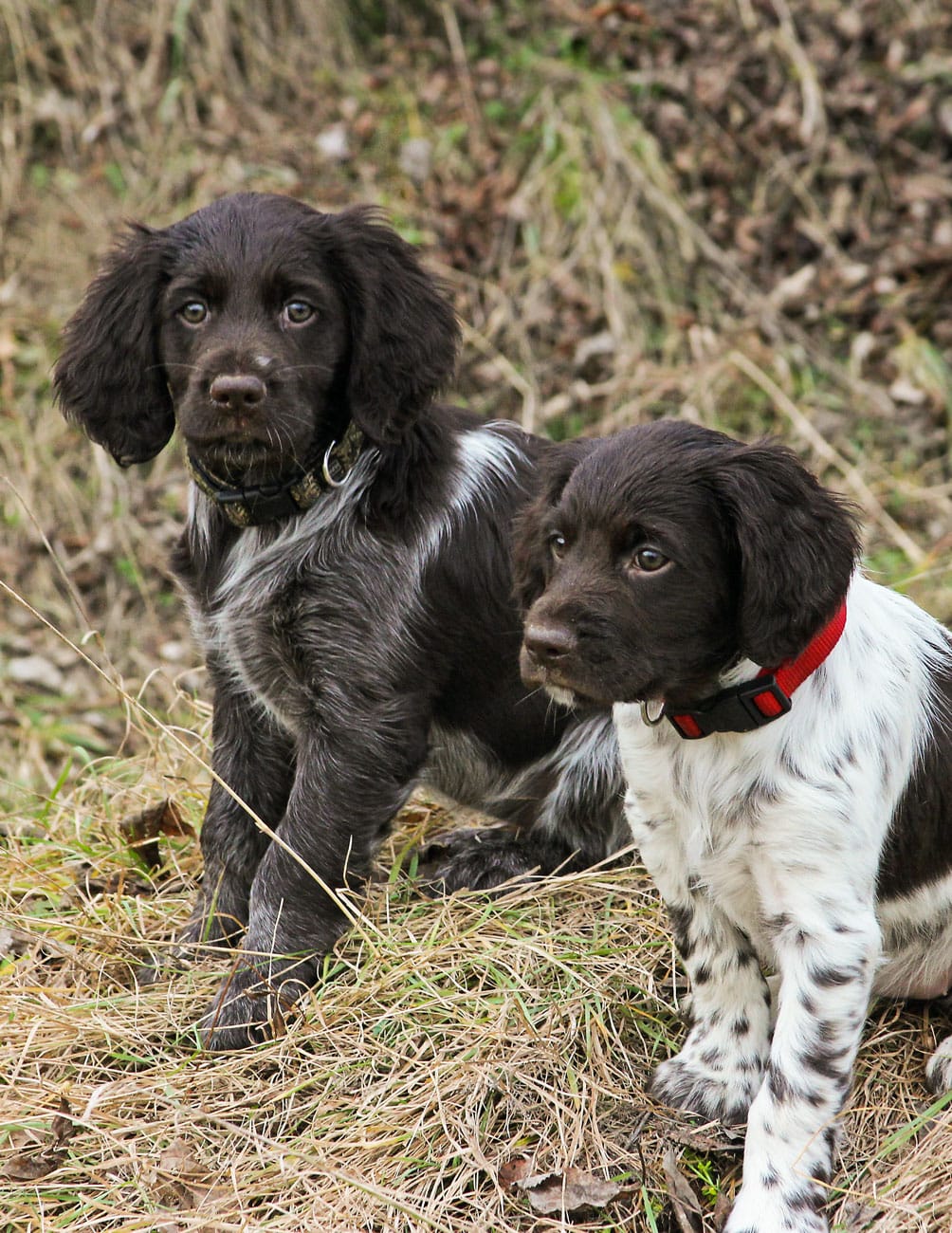Cedars Point Kennel, located in the northern Plains, is dedicated to breeding Small Munsterlanders that excel in versatility, cooperation, and field performance. Our breeding program focuses on producing puppies with the drive for serious hunting while possessing the stable temperament and adaptability needed for a cherished family companion.
A Foundation Built on Experience and Dedication
The journey of Cedars Point Kennel began with a singular aspiration: to find a truly versatile hunting partner capable of navigating the challenges of wild bird hunting. This pursuit quickly blossomed into a profound commitment to understanding the Small Munsterlander breed, rigorously testing our dogs against established standards, and making meticulous, informed breeding decisions. What started with a single dog has grown into a comprehensive program, honed by years of practical hunting experience, formal testing, continuous education, and active engagement within the versatile hunting dog community.
Our Breeding Philosophy: Proof Over Promises
Our guiding philosophy shapes every litter of Small Munsterlander puppies produced at Cedars Point. We firmly believe that breeding should be guided by tangible proof, not mere promises. This principle ensures that our dogs consistently demonstrate the traits essential for a superior hunting companion:
- Natural Hunting Ability and Desire: A strong, innate drive to hunt is paramount.
- Cooperation and Trainability: Dogs that work harmoniously with their handlers and are eager to learn.
- Mental Stability and Sound Temperament: A balanced, confident, and adaptable disposition.
- Correct Structure: Adherence to the breed’s standard, ensuring physical soundness.
- Versatility: Proficiency across diverse environments including field, forest, and water.
Every dog considered for our breeding program undergoes thorough evaluation through real hunting seasons and formal testing. Titles and test results serve as crucial tools for measuring consistency and capability, rather than being the ultimate goals themselves.
Proven Performance in Recognized Systems
Cedars Point Kennel prides itself on the proven capabilities of its dogs, validated through participation in recognized testing and evaluation systems. These include:
- North American Versatile Hunting Dog Association (NAVHDA): A benchmark for evaluating versatile hunting dogs.
- Small Munsterlander Club of America (SMCA): Dedicated to preserving and promoting the breed.
- Versatile Hunting Dog Federation (VHDF): Focusing on the multi-purpose capabilities of hunting breeds.
- International All Breed Canine Association (IABCA): Assessing dogs against international standards.
These rigorous experiences are instrumental in ensuring that our breeding decisions uphold the long-term integrity, versatility, and reliability of the Small Munsterlander breed.
Our Carefully Selected Dogs
Cedars Point operates as an intentionally small, focused program. Our foundation is built upon a select group of dogs chosen for their exceptional hunting prowess, stable temperaments, robust health, and genetic compatibility. Each dog plays a vital role, contributing significantly to the program through their performance, structure, or character. Fundamentally, each is an active hunting companion. The dogs featured on our Our Dogs page exemplify the high standards we uphold in a purpose-bred Small Munsterlander program. Studs considered for our program must ideally mirror this same commitment to excellence.
Small Munsterlander Puppies and Started Dogs
We produce limited, thoughtfully planned litters with the primary goal of placing our dogs into homes that share our values of dedicated training, strong partnership, and long-term commitment. Our Small Munsterlander Puppies benefit from early, comprehensive exposure and socialization. Additionally, started dogs, when available, have already been introduced to birds, water, and foundational obedience, providing a strong head start for their future handlers.
Commitment Extending Beyond the Kennel
Cedars Point’s commitment extends far beyond the breeding process. We are dedicated to responsible breeding practices, continuous learning, and actively contributing to the versatile hunting dog community. Through mentorship, active involvement in testing, our informative blog, and shared resources, we aim to support both novice and experienced handlers on their rewarding journey with this remarkable breed.
Welcome to Cedars Point Kennel
For those seeking a Small Munsterlander bred with clear purpose, evaluated with unwavering integrity, and raised to meet the rigorous demands of both the field and the home, we warmly invite you to explore the world of Cedars Point Kennel.

